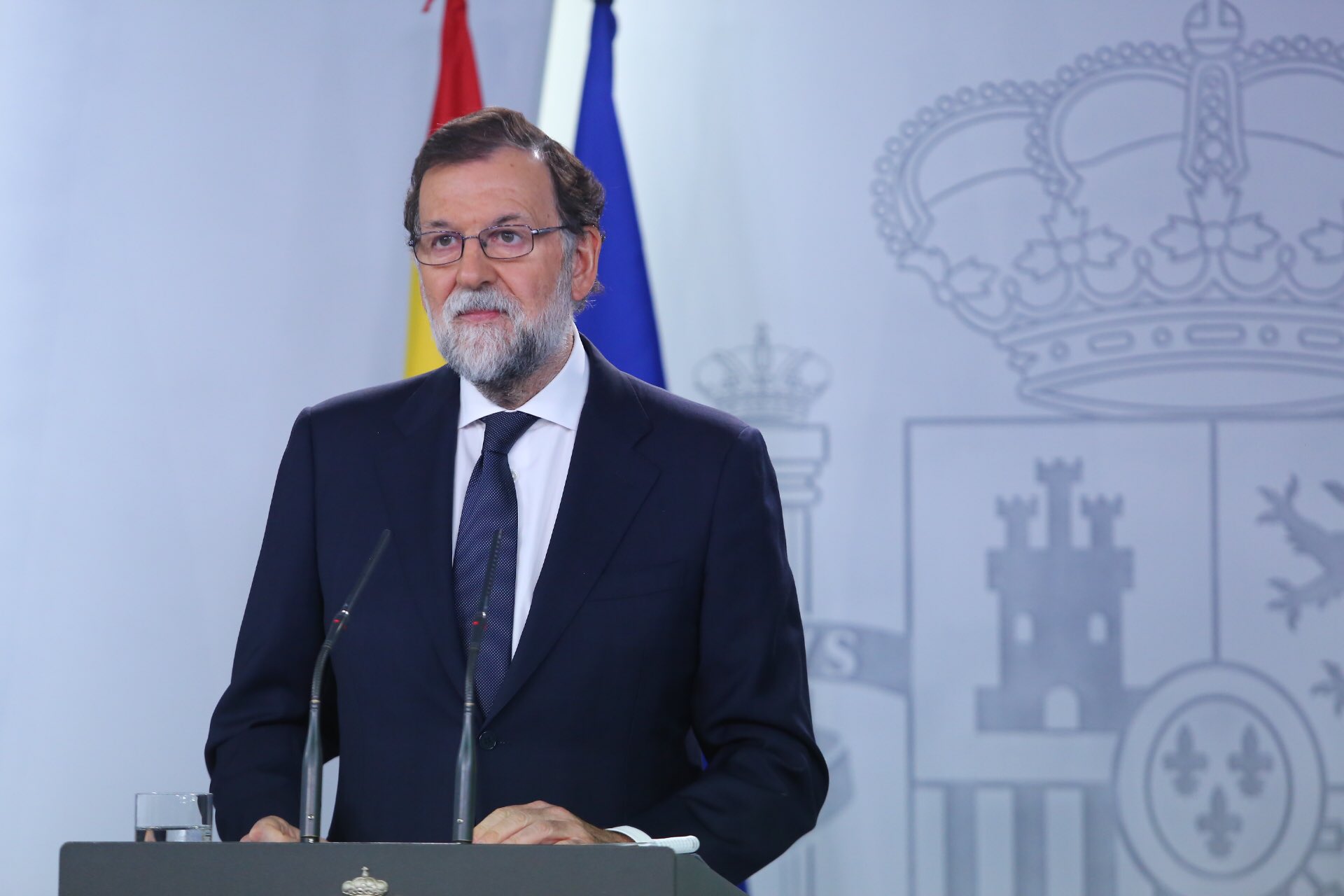The Spanish prime minister, Mariano Rajoy, has asked the Catalan president, Carles Puigdemont, to give up on the 1st October referendum after today's large-scale police operation which led to the arrest of 14 high-ranking Catalan government officials. In a statement from the Moncloa Palace, his official residence, Rajoy said that Catalan authorities are "in time to avoid greater evils". After the statement he didn't take any questions. Sources from the central executive clarify that this is "a last opportunity" from the prime minister for the referendum to be abandoned to avoid a new response from the state, after the police forces have "deactivated" the logistics.
"It's not a political request, the foundations of democracy themselves are in question, where there are always ways to channel political wishes. The law and rights are for everyone, we vote to change them through legal means. It's not democracy to vote for the creation of an exclusionary project, rather exactly the opposite, it's an imposition, an injustice", said Rajoy about the request of the independence movement to decide on the creation of a new state. On this point he boasted that the institutions (the police, the public prosecutors and the judges) have demonstrated this Wednesday their ability to stop "those who want to infringe" the rules of coexistence.
For this reason, Rajoy heated things up, and warned Catalan president Puigdemont to abandon this "escalation of radicalism and disobedience". "Give up, you're in time to avoid greater evils. It doesn't benefit anyone this constant challenge to the justice system and the law." Moncloa sources recall Rajoy's words in Barcelona, when he said that they would make him do "something he doesn't want to do". "To persist is an error of calculation", add the sources, who say that facing a unilateral declaration of independence, the state will take action. "They're not above all that," they concluded.
In this context, Rajoy threw a sidelong remark at PSOE (Spanish Socialist Workers' Party), the day after they refused to vote in favour of a bill in the Congress supporting the state institutions in the referendum, proposed by Ciudadanos (Citizens). "I want to thank, for their collaboration and support, the political parties who know that this wasn't about supporting the government, rather the rule of law and the Spaniards," said the prime minister. "It's time to defend the nation and not put it in doubt", he said.
The Spanish prime minister had less friendly words for Podemos (We Can), after they headed some of the protests in the street, like the one in the Puerta del Sol in Madrid. "To those who take advantage of the independence challenge to create instability in the streets and the institutions, they need to know that they'll have to respond for their disloyalty at such a decisive moment in their political lives," he said. Nonetheless, sources close to the deputy prime minister seem calmer because they say that Podemos won't drag PSOE into making Rajoy's government fall.
Rajoy then urged the Catalan government to put a stop to their "illegal acts and intentions", alluding to the referendum which he believes has been dismantled: "It now can't happen, it was never legal nor legitimate, it's nothing more than an impossible pipe-dream," he boasted. On this point, the sources suggest that they don't anticipate an electronic vote, after the Civil Guard today confiscated 10 million voting slips. They say they would find out easily through state services if the government did manage to organise an electronic vote, which would differentiate it from the 1st October unofficial referendum, in their opinion.

